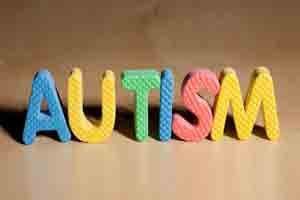- Home
- Editorial
- News
- Practice Guidelines
- Anesthesiology Guidelines
- Cancer Guidelines
- Cardiac Sciences Guidelines
- Critical Care Guidelines
- Dentistry Guidelines
- Dermatology Guidelines
- Diabetes and Endo Guidelines
- Diagnostics Guidelines
- ENT Guidelines
- Featured Practice Guidelines
- Gastroenterology Guidelines
- Geriatrics Guidelines
- Medicine Guidelines
- Nephrology Guidelines
- Neurosciences Guidelines
- Obs and Gynae Guidelines
- Ophthalmology Guidelines
- Orthopaedics Guidelines
- Paediatrics Guidelines
- Psychiatry Guidelines
- Pulmonology Guidelines
- Radiology Guidelines
- Surgery Guidelines
- Urology Guidelines
Link between paracetamol, autism risk dismissed

Moms-to-be, you don't have to ditch your painkiller anymore as scientific experts have dismissed claims of a link between paracetamol and autism.
Though a recent study published in the Journal of Epidemiology found that young boys, whose moms took the painkiller while expecting, were more likely to be on the autistic spectrum, the director of science at autism charity Autistica, Dr James Cusack, begged to differ, the Independent reported.
He said: "This paper does not provide sufficient evidence to support the claim that there is a strong association between paracetamol use and the presentation of symptoms of autism. The results presented are preliminary in their nature, and so should not concern families or pregnant women."
The Spanish study recruited 2,644 mother-child pairs in a birth cohort study during pregnancy. The moms were questioned about their use of paracetamol while pregnant. According to the findings, when assessed at age five, exposed children were at higher risk of hyperactivity or impulsivity symptoms.
But exact doses could not be noted due to mothers being unable to recall them exactly, which experts say makes the claims insufficient. "As the authors correctly state, more research, with careful control for other factors is required to understand whether a link exists at all," Dr Cusack said.
He added that there had been "an array of environmental factors which have been associated with autism, only to be rejected later," emphasising the importance of collecting sufficient evidence before making such claims.

Disclaimer: This site is primarily intended for healthcare professionals. Any content/information on this website does not replace the advice of medical and/or health professionals and should not be construed as medical/diagnostic advice/endorsement or prescription. Use of this site is subject to our terms of use, privacy policy, advertisement policy. © 2020 Minerva Medical Treatment Pvt Ltd